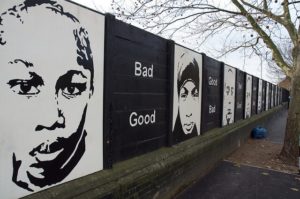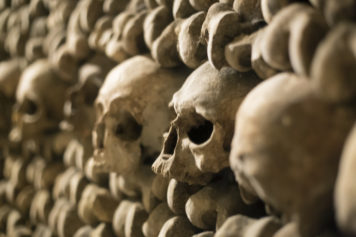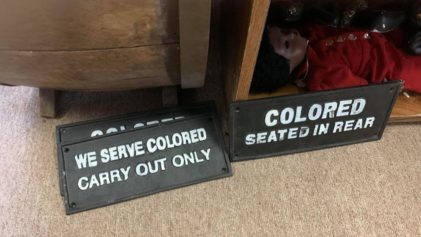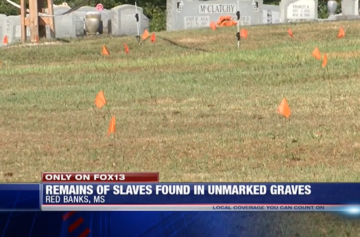
(Pug50/Flickr)
When I was a girl back in the ’60s, I was fixated on clothes, boys, soul music and superheroes. I had misplaced anger, too. I was actually angry at my own Black people. I thought we should have already overcome. I grew tired as a teenager in Mississippi of having to address (and live) racism. My young mind wondered why Batman and Robin couldn’t take on prejudice and BLAM it out of existence? Like my anger, my hopes were misplaced, as Batman couldn’t even get rid of the Joker for good.
As I grew up, I realized how deeply all the “-isms” are entrenched in the structures of America. I grew to respect the endurance of the slaves, of Blacks who carried on during Jim Crow and of everyone nonwhite and white who waged the war for justice. My enlightenment continues, even more recently in the Race and the Law Seminar class I taught last year at Mississippi College School of Law in Jackson, Mississippi.
One of my young students was a white woman from the Southeast. For class, she read the nonfiction book by John Howard Griffin, “Black Like Me,” (1961) where he, a white man, takes a medication to change his skin color and goes undercover as a Black man for a couple of months in the Jim Crow Deep South.
My student also read a contemporary version of an account of a young white man, Joshua Solomon, who did similarly. He had grown tired of hearing his Black friends complain about racism that he himself did not think existed anymore. So, with medication to darken him, he went undercover as a Black man in America, too. Solomon explained in an interview with Jet Magazine (Dec. 26, 1994-Jan. 2, 1995), that he had intended to spend a semester living as a Black man, but he could not take the hate directed toward him. Thus, Solomon lasted only two days as a Black man in the Deep South in 1994.
In response to the struggles of these two white men trying to survive as Black, my white female student declared, “Those white men were really heroic to do that.” Heroic? I questioned. Heroic to be Black for two days or a couple of months? I pressed. I have since been pondering my white student’s remark. If she is right, then Blacks and other nonwhites in America are certainly heroes — actually, SUPERHEROES — to just survive childhood, to make it out of their teen years, to reach adulthood, to live daily as nonwhite and non-privileged people in America!!! I am almost 60, so I must be a SUPER-DUPER-HERO!
Consider: Blacks and other nonwhites are subject to attack when we are innocent, unarmed, unclothed and right out of the shower, in our homes, sipping tea, physically ill, playing with a toy, at school trying to learn, listening to music in our vehicles, hog tied, suffering from a disability, homeless, living in expensive neighborhoods, living in a big white house in D.C., living in poor neighborhoods, middle class, young, middle age, aged and leaning on a cane while standing on our own porch in a nice neighborhood, male, female, childlike at a swimming pool party, driving safely, at work and doing the work of three employees and being paid less than one white employee, in school, at church studying the Bible on a Wednesday night, driving a nice car, driving a car with a slight defect, trying to breathe, walking in the street to avoid a construction site, with hands up, a passenger in a car and reaching for the identification we were told to reach for, being a caregiver for a person with a disability and trying to de-escalate the situation and explain to the police that the disabled person is playing with a toy truck and not armed with a gun, lawfully openly carrying a gun, shopping in a discount store, shopping in an expensive store, and so on and on and on, as we have seen in 2016 and the few years prior.
We must be heroic to survive even when we are in our own schools allowed to us since we were not allowed to attend the well-funded white ones, in our own churches we started when we were subjugated in the white ones, in our own homes (and yes, we can provide paperwork proving it is our own), in our majority-minority impoverished towns seeking peace from post-slavery Jim Crow, trying to dodge police conducting high-speed chases through our neighborhoods while chasing shoplifters out of the suburbs, and so on.
Are we heroes to survive all of this? As Black people trying to survive, we have been — and still are — called many things. But rarely are we called heroes just for surviving each day as Black and doing the best we can.
So, instead of us putting down, us Blacks who fall from the sky in attempted flight, I am calling out for us to refocus on celebrating the ones who fall down or who are pushed down or even wounded or shot down but keep trying to get back up and keep trying to take flight again. And when we look at each other, we must feel in awe and see ourselves as the superheroes (my student suggests) we are, and that our ancestors were, just to survive more than two days (like the young white man Joshua Solomon) or two months (like the older white man John Howard Griffin) as Black in America.
Angela Mae Kupenda is a Professor of Law at Mississippi College School of Law. She teaches Constitutional Law, First Amendment, Race and the Law, and Civil Rights. Her recent publications include “Increasing Black Wealth Takes Generational Sacrifice — It Always Has” on Ebony.com, (June 14, 2016) and “Higher Education: Putting Our Children on the Bus to Success” in The Journal of Blacks in Higher Education (July 27, 2016).


